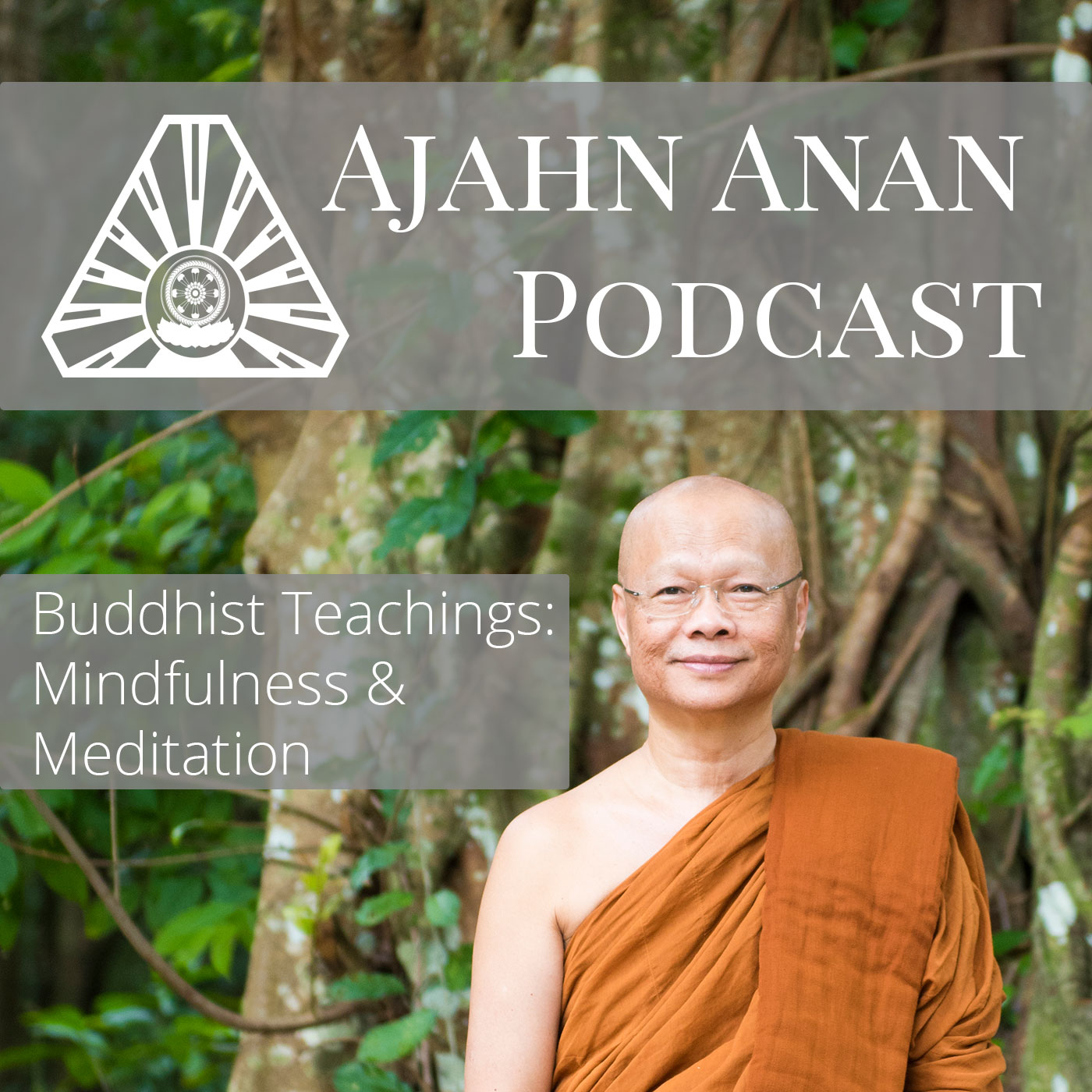
In this morning talk, Ajahn Anan teaches about establishing mindfulness, contemplating emptiness, the benefits and rare opportunity of ordination, building merit, heedfulness, and more.

When we see for ourselves the nature of reality, we know that the Buddha is real and his teachings are genuine. We know that walking this path actually leads us out of suffering. It doesn’t matter what other people say, we know that the Buddha, Dhamma and Sangha are real.
To join Ajahn Anan and the Wat Marp Jan Community online for daily chanting, meditation, and a Dhamma talk, you can email wmjdhamma@gmail.com for the link. Daily live sessions at 7pm – 9pm, Indochina Time (Bangkok, GMT+7).

2021.06.08 | All forms are not self, and so they are empty. And within that emptiness, there is the convention of form.
To join Ajahn Anan and the Wat Marp Jan Community online for daily chanting, meditation, and a Dhamma talk, you can email wmjdhamma@gmail.com for the link. Daily live sessions at 7pm – 9pm, Indochina Time (Bangkok, GMT+7).

In this talk, Ajahn Anan gives us guidance on how to develop our hearts in the quality of compassion.

In the world there are many paths that we can travel along—dangerous ones, difficult ones and smooth ones. It’s the same for our minds. We can choose to take them along a path that leads to difficulty and darkness, or a path that leads to happiness and light. It’s up to us.
To join Ajahn Anan and the Wat Marp Jan Community online for daily chanting, meditation, and a Dhamma talk, you can email wmjdhamma@gmail.com for the link. Daily live sessions at 7pm – 9pm, Indochina Time (Bangkok, GMT+7).

In this talk, Ajahn Anan explains the correct method to purify negative kamma in line with the teachings of the Buddha.

We have a coarse outer body that all people can see, but we also have a subtle inner body that is invisible to our eyes. This is the body of our minds, and it’s important for us to develop this one to be higher and better.
To join Ajahn Anan and the Wat Marp Jan Community online for daily chanting, meditation, and a Dhamma talk, you can email wmjdhamma@gmail.com for the link. Daily live sessions at 7pm – 9pm, Indochina Time (Bangkok, GMT+7).

In this talk, Ajahn Anan explains how the world is completely composed of conventions. When our minds understand this, they can put the world down and abide above it.
To join Ajahn Anan and the Wat Marp Jan Community online for daily chanting, meditation, and a Dhamma talk, you can email wmjdhamma@gmail.com for the link. Daily live sessions at 7pm – 9pm, Indochina Time (Bangkok, GMT+7).

In many places they teach to focus solely on vipassanā (insight), but really, in the initial stages, every aspect of the practice is samatha (tranquility). When we develop this way of bringing our hearts to peace, then investigating reality, we’ll realize the highest happiness that the Buddha himself gained.
To listen to most recent talks, you can visit our YouTube page: https://www.youtube.com/ajahnanan
To join Ajahn Anan and the Wat Marp Jan Community online for daily chanting, meditation, and a Dhamma talk, you can email wmjdhamma@gmail.com for the link. Live sessions everyday from 7pm to 9pm. Indochina Time (Bangkok, GMT+7).

The five hindrances obstruct peace of mind, samadhi. And having gained samadhi, one must be careful not to misunderstand this peace as awakening and enlightenment. One practises samadhi for the sake of seeing clearly the nature of reality, that all phenomena are anicca, dukkha, and anatta. This insight is capable of liberating the mind from all suffering.
To join Ajahn Anan and the Wat Marp Jan Community online for daily chanting, meditation, and a Dhamma talk, you can email wmjdhamma@gmail.com for the link. Daily live sessions at 7pm – 9pm, Indochina Time (Bangkok, GMT+7).
